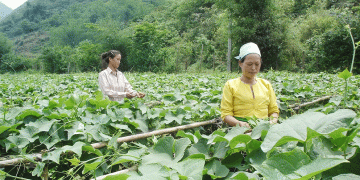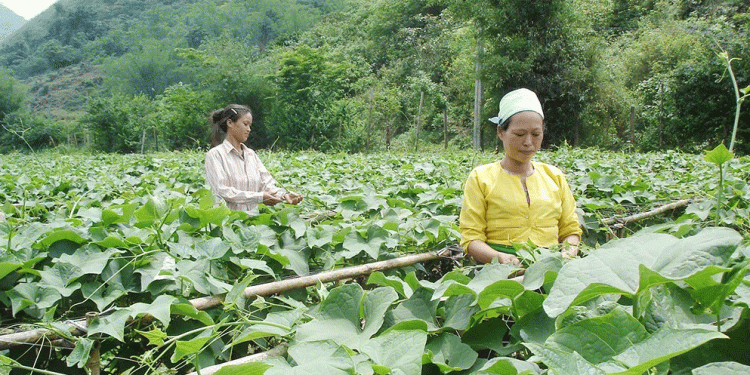In the highlands of northern Vietnam, a quiet agricultural revolution is underway. Van Son, a newly established commune in Phu Tho province, has made a decisive pivot away from traditional, subsistence farming towards a future built on clean, organic agriculture and agritourism. This strategic shift, formalized in the commune’s first Party Congress Resolution, is not just a policy directive—it’s a practical blueprint that is already generating tangible results for farmers and attracting significant investment. The Van Son model offers valuable insights for agricultural professionals worldwide looking to enhance sustainability and profitability.
The Power of a Strategic Vision and Cooperative Models
The cornerstone of Van Son’s transformation is its clear, actionable strategy. The local government has identified clean and organic agriculture as the central pillar for development, explicitly linking it to ecological tourism with the goal of becoming a provincial-level tourist destination by 2030. This top-down vision provides crucial direction and attracts the necessary investment.
Central to this success is the shift from individual smallholdings to a cooperative-based production model. Van Son now boasts 8 cooperatives and 1 collaboration group, with 6 operating highly effectively. These entities, such as the V.Organic Cooperative, function like “green factories,” employing local farmers as skilled agricultural workers. They enforce strict technical protocols, including greenhouse systems, scientific drip irrigation, and crop rotation to minimize pests. This professionalization of farming is a key trend noted by the FAO, which emphasizes that producer organizations are critical for achieving economies of scale, improving market access, and facilitating the adoption of sustainable technologies.
Data-Driven Results: Yield, Income, and Market Access
The economic returns from this new approach are compelling and provide a powerful case study in value-added production:
- High-Value Crop Transition: Farmers have replaced low-yield corn and rice with high-value crops. Citrus orchards, with 1,300-1,400 trees, are now generating nearly 1 billion VND (~$39,300 USD) annually for individual farmers like Mr. Ha Van Doan.
- Cooperatives Driving Revenue: The V.Organic Cooperative, on just 8 hectares, has supplied 250 tons of clean vegetables to Hanoi in 2025 alone, generating over 3 billion VND (~$118,000 USD) in revenue. This demonstrates the powerful market demand for certified safe produce.
- Exceptional ROI on Specialty Crops: The expansion of su su (chayote) from a backyard crop to nearly 70 hectares involving 100 households highlights the economic upside. Farmers report incomes of 80-90 million VND per year from su su, representing a 5-6 fold increase over previous rice cultivation yields. This aligns with global data showing that diversifying into high-value horticultural crops is one of the most reliable paths out of poverty for smallholders.
Leveraging Natural Capital and Building a Brand
Van Son’s strategy smartly leverages its innate advantages: an average altitude of 800 meters, a cool climate year-round, and pristine water sources. These are ideal conditions for organic agriculture, which the commune has mapped into dedicated zones for clean vegetables (180 ha), citrus (197 ha), tea, and medicinal herbs.
Critically, Van Son is moving beyond mere production to build a recognizable brand. The goal to develop at least 5 OCOP (One Commune One Product) products rated 3-stars and above by 2030 is a strategic move to capture more value. The creation of the “Van Son Clean Agricultural Product” brand is intended to act as a guarantee of quality, commanding premium prices and attracting tourists seeking authentic experiences. This focus on branding is essential; a 2023 report by the International Trade Centre found that geographically branded products can achieve price premiums of 20-50% in both domestic and international markets.
A Replicable Blueprint for Sustainable Rural Development
Van Son’s journey from subsistence to a modern agricultural economy underscores several universal principles for success:
- Leadership and Vision: A clear, committed political resolution provides the essential framework and signals seriousness to investors and farmers alike.
- Cooperation is Key: Professional cooperatives are indispensable for standardizing quality, achieving scale, and integrating smallholders into formal value chains.
- Embrace Value Addition: The future lies not in selling raw commodities but in producing branded, high-value, and safe products that meet consumer demand.
- Synergy with Tourism: Linking agriculture with eco-tourism creates additional revenue streams, enhances brand visibility, and makes the entire region more resilient.
Van Son’s “quyet sach” (decisive policy) is more than a local plan; it is a replicable blueprint. By prioritizing a mindset shift, strategic planning, and a relentless focus on quality and branding, Van Son is demonstrating how rural agricultural communities can thrive in the modern economy.































